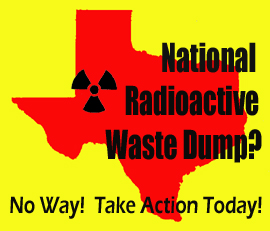Representatives from San Antonio’s CPS Energy and NRG Energy, their partner in the proposed South Texas Nuclear Project expansion, met this morning to try and reach a settlement on their $32 Billion lawsuit. But CPS acting General Manager Jelynne LeBlanc-Burley apparently walked out of the meeting after learning that “neither Nuclear Innovation North America CEO Steve Winn nor NRG Energy CEO David Crane made the trip to San Antonio.”
Update: Monday’s settlement meeting ended with no resolution. Cooperation fail.
Meanwhile, a new non-profit called the Ratepayer Protection Coalition announced its inception and intention to intervene in the CPS-NRG’s lawsuit.
Whaaaa? They can do that? Yes, according to attorney Karen Seal:
In Texas, citizen groups have the right to intervene in lawsuits like this if there is evidence of illegal activity like fraud and misrepresentation and if the behavior is expected to continue. We believe this to be the case. We hope to protect our interest as ratepayers, taxpayers and voters from continuing fraud and misrepresentation by all parties.
But why intervene? Orlando Gutierrez, president of the coalition, had the following to say:
Ratepayers are not represented in the legal proceedings between these parties, although they will bear the brunt of a bad settlement deal with higher electric bills. There has been fraud and misrepresentation throughout this process. CPS withheld information and misled the public about the $4 billion cost increase throughout the series of eleven district meetings last year. Project partner NRG admits to misrepresenting costs for purposes of negotiation. Both partners deceived the City Council. Yet neither the Council, taxpayers, or voters have independent representation in the Court.
The Ratepayer Protection Coalition is seeking discovery information to “get to the truth” about the costs of the proposed reactors and available energy alternatives.
According to Greg Harman, reporter at the San Antonio Current:
CPS can’t represent the City of San Antonio, argues the Ratepayer Protection Coalition, a collection of familiar faces from the vindicated critics’ pool. Not only has CPS “conducted a campaign of misinformation, disinformation, and deception designed to convince the San Antonio community about the merits of pursuing nuclear power” but threatened the City Council “that a decision not to pursue the nuclear project would lead to the loss of hundreds of millions of dollars spent on the project to date by CPS Energy.”
In short, CPS has “dirty hands” and can’t represent the City of San Antonio in court, according to RPC’s complaint filed this morning in the 37th District Court, joining the CPS-NRG lawsuit as an intervener.
###
By promoting cleaner energy, cleaner government, and cleaner air for all Texans, we hope to provide for a healthy place to live and prosper. We are Public Citizen Texas.
Read Full Post »






